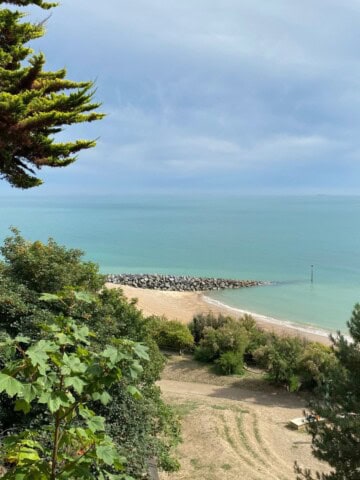Posted 19 March 2020
Across many countries in-person teaching at universities has now ceased, and moved to online teaching and guided study. Exams have been cancelled here in the UK, and each university has their own policies over this. It is, of course, a distressing time for many students who have worked so hard this academic year and had hopes of completing exams or finishing their studies by throwing their graduation hat in the air (as is tradition here at least!) while celebrating with friends and family.
I spoke with a close friend, who we will call John (not his real name), who is a senior lecturer at a London university recently, and asked whether he could contribute something for me to share here as he has been actively supporting his students. Of course, as we discussed, the most important thing right now is to look after yourself and loved ones. That's of absolute importance. Studying isn't a priority right now. You shouldn't feel that you have to study if you aren't able to do so.
For some students though, those who are well and staying home, studying may be a good distraction. It may help to feel as though you have a focus and something to plan your day around. John shares these tips for online study, and I hope that you find them useful if you are able to study, and wish to do so.
While this advice was specific to the university he works at, John's advice should be helpful and applicable to most university settings, and I know many are actively uploading teaching materials at the moment. If you have any doubt, email your own tutor, lecturer or support staff to find out how your college or university is approaching online learning.

These are John's words:
A student asked me this:
“Hi John, I was just wondering if you had any advice in finding sources for essays and revision now that we can't go to the library.”
Here’s an answer:
- Look at the virtual learning pages for the course you’re working on, and the formal course outline. There will be online reading lists with hyper links to some of the key resources themselves. There will also be links to other sources. I suspect many of us are working on putting texts up on the virtual learning pages that will be helpful right now, so keep looking.
- There is a huge amount of material available from our library online. So do library searches in the usual way and see what ebooks you can find, and what other electronic resources they throw up. Our library gives you access to lots of online journal articles. Don’t be afraid to ask for help by email from the librarians.
- Then, be persistent and creative. The internet is big. So the key thing is to look for all kinds of resources online, but always think critically and explicitly about what the sources are and what they tell you.
- You’ll find any number of classic texts online. I just googled ‘"Origins of Totalitarianism" full text’ and there it is, the whole book by Hannah Arendt. I googled ‘Marx Capital “full text”’, and there it is, Volume 1. You have to be careful, make a judgment about whether it really is what it appears to be.
- If you can’t find a book that you need by a particular author, you might find other things they have written about the same topic. You might find early drafts of parts of it that were published as papers. Or you might find articles which were published in more accessible spaces, like newspapers or the New York Review of Books or The Atlantic or any one of hundreds of other places you can find online.If the person you want to read is still working in a university, you might find their university homepage, and you might find lots of their work linked to from there. Look at our own university homepages, for example, and you’ll find huge amounts of free access material that we’ve written. I think given the current circumstances, if you can’t find a specific article or book, but you can find things written by the same person about the same topic, then markers will be understanding.
- Try YouTube. For example, if you’re interested in the European Court of Human Rights (ECHR) do a search and you will find videos of conference presentations discussing it's operations. You will find things about the ECHR; you might find things are negative, as well as positive, about their work.

But this is also a good example of where you have to be careful and critical. Maybe a video – or any source actually – that you turn up about the ECHR is not what you thought it would be. Maybe it is sympathetic to one side or another of the case; maybe it is produced to whitewash one side’s crimes. But every source can be useful if you use it right. Once you work out what you’re looking at, a video or a website produced by supporters of one side in a conflict might be really interesting. It might tell you important things, they might just not be the things that the people who created the text think they’re telling you.
- Sticking with the same example, the ECHR itself has a website and on that website is an unimaginably huge amount of written and video material. There are footage and transcripts and judgments; literally millions of pages. You can’t use millions of pages but you can look, and browse and search. But again, be a little suspicious of the material an organisation writes about itself.
- Think about online sources: who produced them, why, what is their position, when did they produce them, what is their narrative, what is their version of reality? Is it authoritative or popular? Does it contain facts which you might judge are true, or does it contain lies and conspiracy fantasies which are only interesting as examples of propaganda?
Good luck. Work hard. Think hard. Don’t be afraid to discuss the sources that you are using in the text of your coursework itself. Don’t be afraid to compare different arguments or positions.
Sometimes external difficulties force you to be more interesting and original and critical than you otherwise would have been.
Thank you so much to John for sharing this very helpful advice.
Pin to your studying Pinterest board!

Please follow the advice of your doctor as to all medical treatments, supplements and dietary choices, as set out in my disclaimer. I am not a medical professional, and this post, as well as all other posts on this blog, are for informational purposes only.

















Comments
No Comments